On May 10, 2025, when Marabi Club at Hallmark House in Maboneng switches off its lights for the final time, it will mark more than just the closure of a venue – it will, for many, shutter an era of optimism about Johannesburg and be seen as yet another nail in the city’s coffin.
But that narrative is only one side of the story. Marabi’s closure is a call to action: to stop merely watching and commenting and to become active in supporting the businesses we don’t want to see close.In recent research we conducted – mapping businesses in the inner city – it was revealed that there are more than 70 key cultural and entertainment sites, including museums, theatres, design hubs, artist studios, restaurants, and performance spaces. Of course, there are many more.
To frame Johannesburg’s story purely as one of decay is to ignore its complexity, resilience, and potential.
Decline is not the whole truth: The danger of a single narrative
Although it’s tempting to list the many entrepreneurs and visionaries forced to give up on inner-city Johannesburg, due to tough conditions, shifting urban dynamics, and official neglect, it's time to rethink how we view and interact with this city.A recent post by Gerald Garner of Local Places on Facebook catalogued more than 40 businesses that have closed since 2016.
The tragedy of closures is not just about lost dreams; it’s about lost opportunities, jobs, and the erosion of what Johannesburg so desperately needs – vibrancy, creativity, support and hope.
"To frame Johannesburg’s story purely as one of decay is to ignore its complexity, resilience, and potential."
The hardship is real, but running a business in any city requires navigating supply and demand, adapting to conditions, and surviving cycles of change.
Yet focusing only on loss obscures another truth: Johannesburg is in a constant state of reinvention. We’ll return to that.
Marabi Club: A symbol of ambition and change
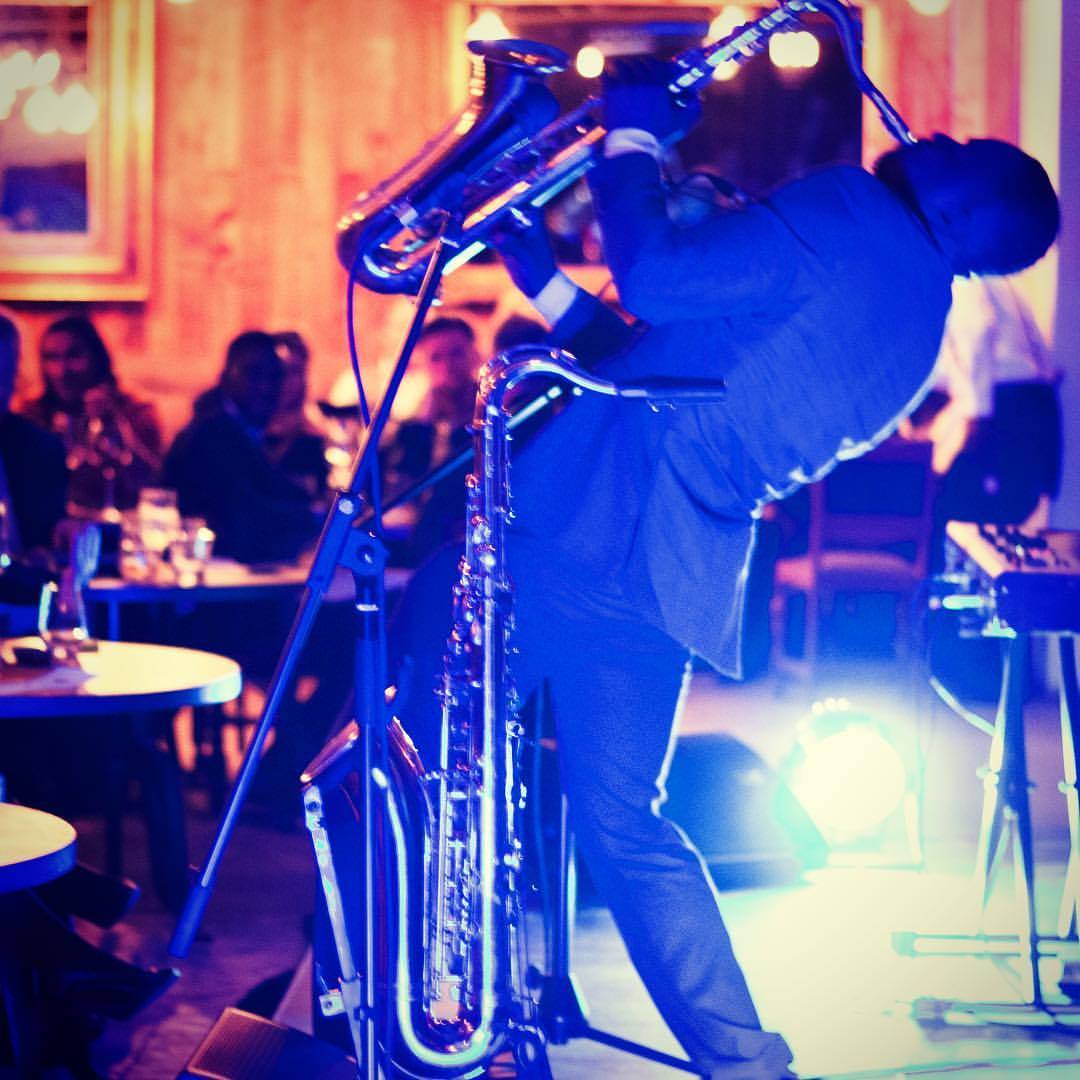
We were there at the start. Marabi Club wasn’t just a jazz bar – it was one of the most exciting cultural ideas of its time, a huge vote of confidence in the city by one of Johannesburg’s most influential families.
If you aren’t familiar, Marabi is an underground speakeasy, attached to Hallmark House, and inspired by a survivalist Marabi culture – a music-driven spirit as old as Johannesburg itself.
Hallmark House Hotel, where Marabi Club is located, has found itself languishing with 20% occupancy. Once it was the toast of architecture magazines, hailed as star architect David Adjaye’s first residential project in Africa, under the bold vision of Maboneng created by Jonathan Liebmann.
This modernist building that once served as a diamond polishing centre in the 1970s, was the space that first attracted one of South Africa's most renowned chefs Luke Dale Roberts to Joburg. His Pot Luck Club venture found a home here. It’s also where the brilliant Chef Katlego Mlambo, a Masterchef judge, then took up residence. More recently, it became home to one of the world's most luxurious penthouse suites.
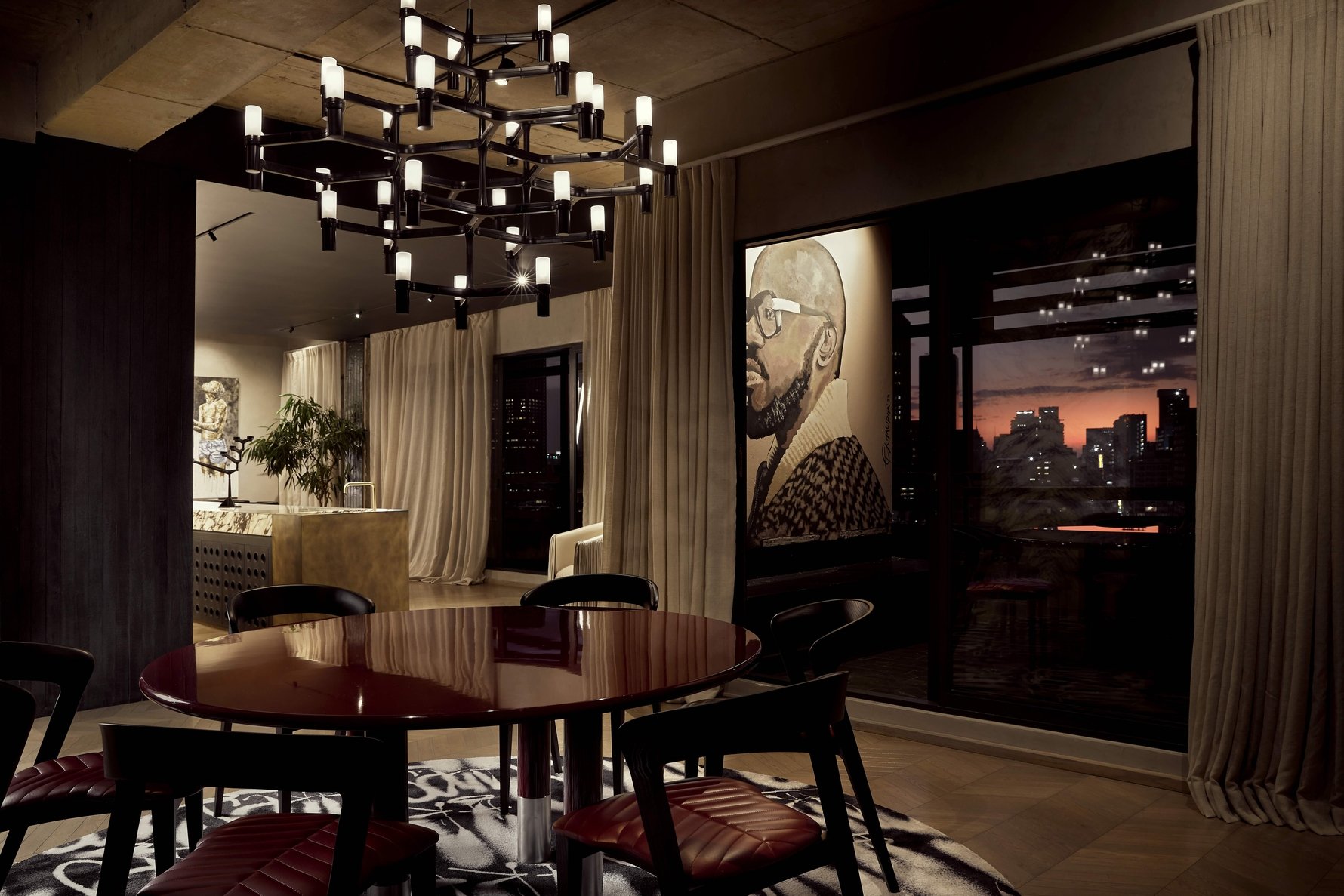
It would be impossible to name all the celebrities and corporate CEOs who have walked through the door in that building. It should be enough to say that Hallmark House was where Jay-Z chose to host his birthday party when he visited Joburg for Global Citizen. Along with bigwigs came an incredible sampling of music. Founders TJ Steyn and Dale de Ruig head Steyn Entertainment, a leading hospitality and entertainment media house. They are also the team behind the popular Rocking The Daisies music festival.
So what has gone wrong? In this ongoing narrative of the city’s decline, it appears it has been easier to identify and work on the things that don’t work rather than shoring up the ones that do. It’s a weird paradox. They say in Joburg you need to have eyes at the back of your head. On the one hand, that’s about safety, but on the other, it’s about not only looking in one direction. Like the Roman God Janus who is the god of beginnings, endings, and transitions, you need to have a dual vision.
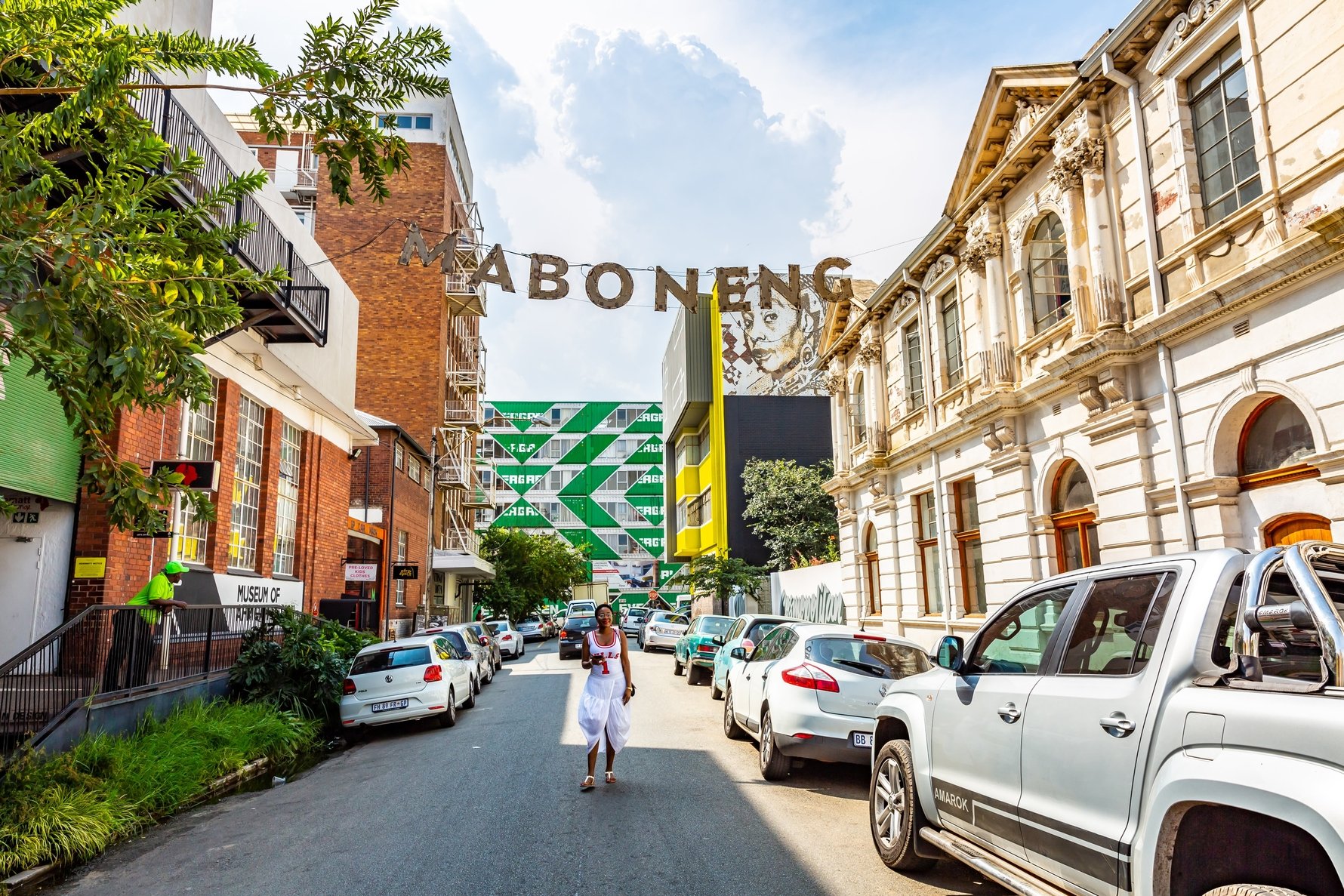
If you only lament what’s going and gone, you ignore the things that are succeeding, and work against them by withdrawing your support.
Even those who now want to “save” the city often view it through a narrative of decline, missing the successes still present. Joburg can’t only be saved by corporate social responsibility spend. It needs businesses to grow and to thrive, and when that happens, the immense social burden currently in focus in the city will become more manageable rather than being the defining aspect of the city.
"There is an energy and a creative pulse to this city that you just don't find anywhere else. We think it's worth fighting for."
Cities change and Johannesburg has changed – through Covid, through demographic shifts, and tragically, through intense leadership neglect. The mayor has changed so many times over the past few years that at the time of writing, the page recording the current executive mayor of Joburg on the City of Joburg's website is blank.
Negligence, missed opportunities, and the absence of leadership
Johannesburg’s decline is not a natural disaster – it is man-made. Entrepreneurs invested passion and capital into revitalising districts like Maboneng and Braamfontein, but the official city government and tourism bodies have mostly remained absent, leaving basic services to fall apart.The irony is stark: as Marabi prepares to close, SA Tourism flights a glossy advert urging people to “Come find your joy” – set partly in a Maboneng that no longer exists.
Instead of supporting the pioneers who brought new life into Johannesburg, the system receded, leaving isolated islands of excellence struggling to survive in an unmanaged, crumbling environment.
Johannesburg: A city of contradictions
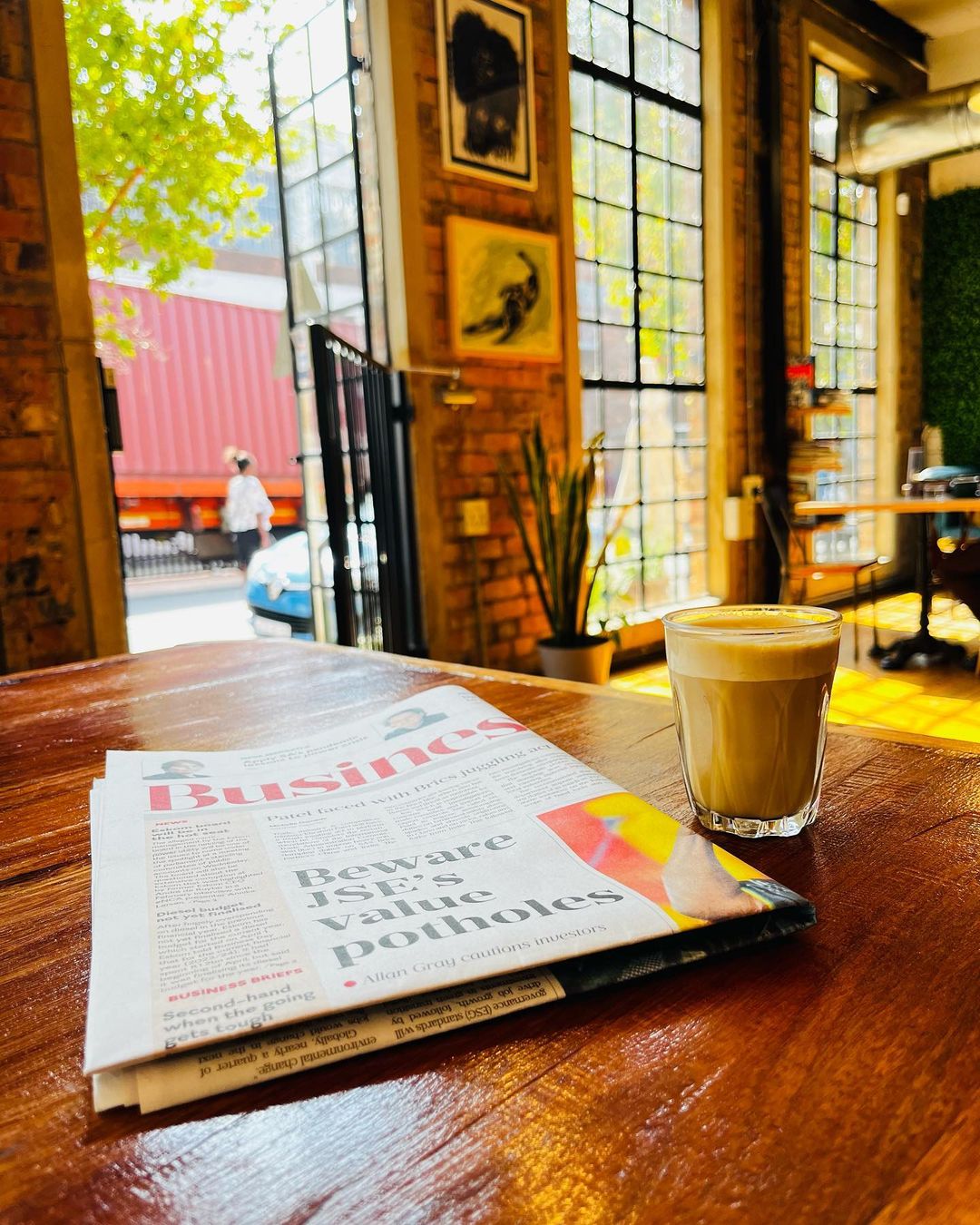
Johannesburg is a city of two narratives: One of intense decline, destruction, dysfunction, and survival in a place where governance has all but disappeared. And another of vibrant creativity, deep human connection, and resilience.
Just a few blocks from Hallmark House – though we wouldn't recommend the walk – is August House, an extraordinary artist studio space. Nearby is the most welcoming coffee shop Home of the Bean, part of Arts on Main, where William Kentridge’s Centre for The Less Good Idea thrives alongside David Krut’s renowned print studio.
Johannesburg continues to produce world-class talent, even as it struggles to contain and support them. But perhaps the very fact that so many creatives have found global success speaks not to the city's failure, but to its power to inspire dreams that transcend its borders.
The real problem: disconnection and poor urban vision
One of Johannesburg’s greatest challenges is its lack of organic urban planning. City improvement districts have mapped zones like colonial powers dividing Africa – seeking to connect only that which is commercial and without any real consideration of the city as a cultural space, and of how people move, connect, and live. Many developments ignore the organic trails carved by everyday people, resulting in impassable blocks of abandonment.Without cohesive urban planning and leadership, Johannesburg has become an archipelago – with shiny islands separated by seas of neglect. Egos are also at work, but who can blame people for not wanting to work together when they feel their backs are constantly against the wall, and they are spending their time just trying to keep the lights on.
For more than a decade, Johannesburg In Your Pocket has tried to bridge these gaps. Some days, it would probably be easier to walk away, and to move our wagon to a more functional city, but Joburg has us in its thrall. There is an energy and a creative pulse to this city that you just don't find anywhere else. We think it's worth fighting for.
Why rethinking the city is essential
Cities are living organisms. They endure hardship, but they also regenerate when given care. Johannesburg needs more than survival – it needs reimagining. It needs leadership that enables rather than abandons, communities that engage rather than retreat, and citizens who show up – not just when venues close, but every day."Cities thrive on participation. They survive because people invest time, belief, and energy into them."
We must stop waiting for rescue and start nurturing what we still have.
A call to action: Believe in the city’s future
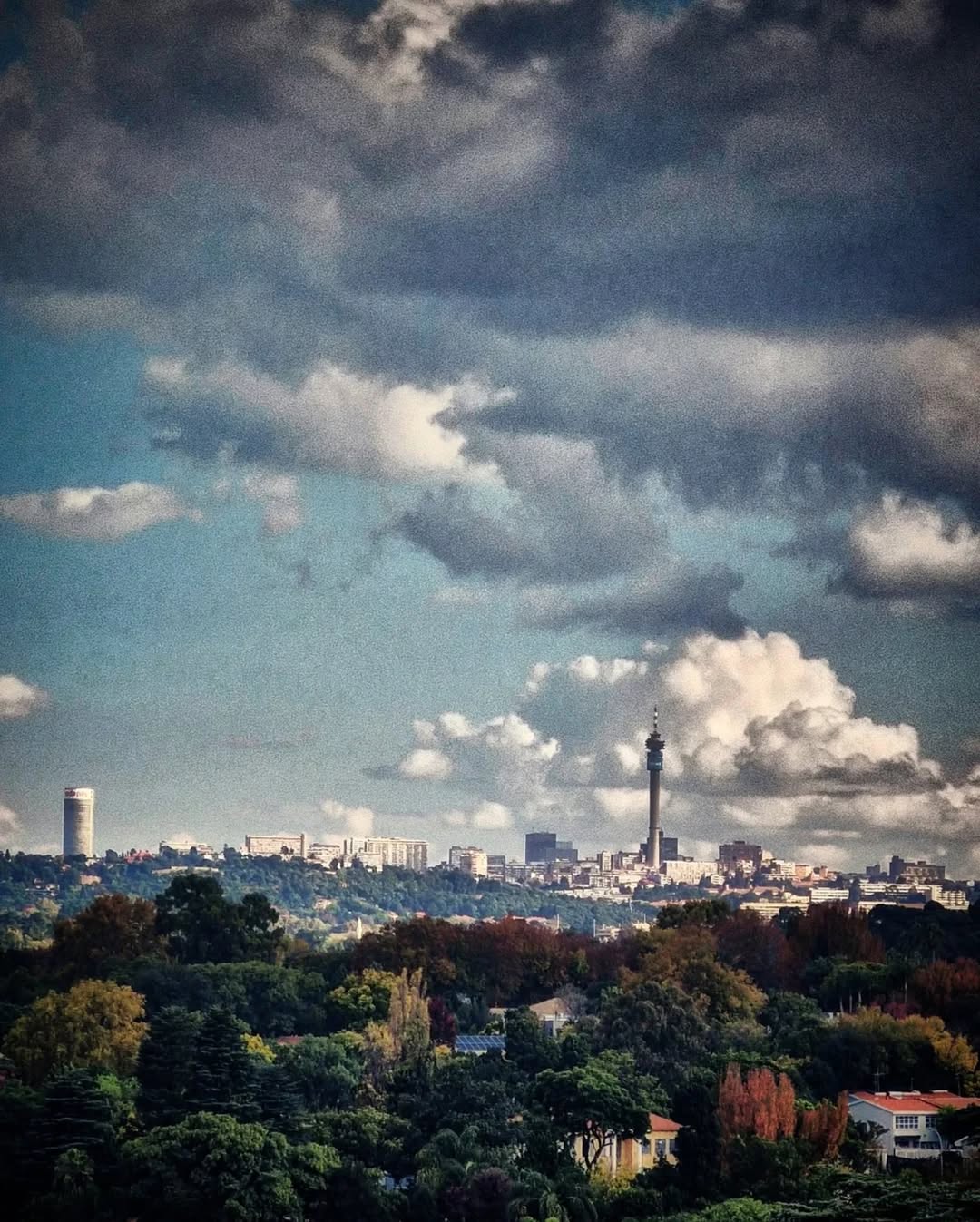
When places like Marabi Club close, we must ask ourselves: when was the last time I supported it?
Cities thrive on participation. They survive because people invest time, belief, and energy into them.
At Johannesburg In Your Pocket, we value your support in strengthening our work of promoting the city by reading and sharing it. Every week, we do our best to continue mapping, promoting, and supporting the businesses, cultural spaces, and people that believe in this city and inspire us to do the same. If we allow the connections between them to be unplugged – that’s when the lights will really go out.
Marabi Club’s closure is not the end of Johannesburg. It is a reminder that cities require constant care, vision, and participation. Johannesburg is messy, complicated, and at times heartbreaking – but also vibrant, creative, and full of possibilities.
The real question isn’t whether the city is dying. It’s how we choose to live within it and support it.
Until May 10, 2025 you can still experience dinner at Marabi Club. Add a stayover at Hallmark House – book here.


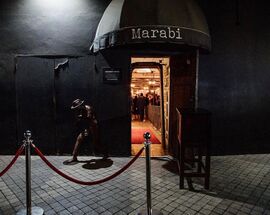
_m.jpg)
_m.jpg)


Comments